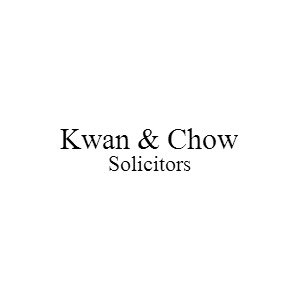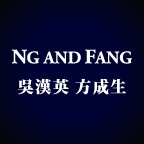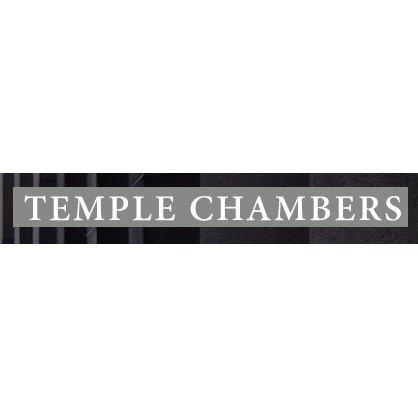Best Sanctions & Export Controls Lawyers in Hong Kong
Share your needs with us, get contacted by law firms.
Free. Takes 2 min.
Or refine your search by selecting a city:
List of the best lawyers in Hong Kong
About Sanctions & Export Controls Law in Hong Kong
Sanctions and export controls are vital aspects of international trade and security. In Hong Kong, these laws regulate the transfer of goods, technology, and financial transactions to ensure compliance with international obligations and local policies. They play a crucial role in preventing the proliferation of weapons, protecting national security, and supporting global efforts to maintain peace. Hong Kong, as a Special Administrative Region of China, maintains its own legal framework for sanctions and export controls, distinct from Mainland China, and tightly aligned with United Nations (UN) requirements and international standards.
Why You May Need a Lawyer
Navigating sanctions and export controls laws can be complex and challenging, especially given the high stakes involved. You might need legal advice or assistance in the following situations:
- You are an exporter, re-exporter, or freight forwarder dealing with sensitive goods or technologies.
- Your company is planning business with countries or entities subject to international or Hong Kong-specific sanctions.
- You suspect your company has inadvertently violated export controls or sanctions laws.
- You have been contacted by law enforcement or regulatory authorities about compliance issues.
- You need to understand the risks and obligations before entering new international markets.
- You are unsure if a product or service requires an export licence or is subject to restrictions.
- Your business deals in dual-use goods, strategic commodities, or intangible technology transfers.
- Your financial institution is concerned about sanctions compliance in cross-border transactions.
In these situations, a lawyer can provide guidance to ensure full compliance, prevent breaches, reduce risks, and, if necessary, defend your interests in investigations or legal proceedings.
Local Laws Overview
Sanctions and export controls in Hong Kong are governed by a combination of local ordinances, regulations, and international commitments. Here are some key legal aspects you should know:
- UN Sanctions Implementation: Under the United Nations Sanctions Ordinance (Cap. 537), Hong Kong implements UN Security Council sanctions, including embargoes on arms, trade restrictions, travel bans, and asset freezes. All related resolutions are given force of law in Hong Kong through subsidiary legislation.
- Strategic Trade Controls: The Import and Export Ordinance (Cap. 60) and the Import and Export (Strategic Commodities) Regulations require licences for the export, re-export, import, or transshipment of strategic commodities. These typically include weapons, munitions, dual-use goods, and related technology that could have military or proliferation-related applications.
- End-Use and End-User Controls: Exporters must ensure that strategic goods are not diverted to prohibited destinations or for prohibited uses. Due diligence and screening of end-users are required.
- Customs and Excise Department: This department enforces export control laws, issues licences, and investigates suspected violations.
- Penalties: Breaching export controls or sanctions can lead to severe penalties, including fines and imprisonment, loss of business licences, and reputational damage.
Hong Kong's legislation aligns closely with international standards and is frequently updated to reflect changes in UN Security Council resolutions or other international developments.
Frequently Asked Questions
What are sanctions?
Sanctions are legal measures imposed to restrict trade, financial transactions, or other activities with certain countries, entities, or individuals. These are typically implemented to pursue foreign policy or security goals, such as preventing terrorism or the proliferation of weapons.
What are export controls?
Export controls are laws and regulations that regulate the movement of goods, technology, and services out of a country. In Hong Kong, this mainly relates to strategic commodities and military or dual-use technologies.
How do I know if my product needs an export licence?
The Hong Kong Customs and Excise Department provides lists of controlled goods and technologies. If your product appears on the Strategic Commodities Control List, you must apply for and obtain an export licence before exporting, re-exporting, or transshipping the items.
What is a dual-use item?
Dual-use items are goods, software, or technology intended for civilian use but which can also have military applications or could be used in weapons development. These are subject to stricter controls.
Does Hong Kong follow sanctions imposed by countries other than the UN?
Hong Kong primarily implements United Nations Security Council sanctions. While aware of other countries’ sanctions regimes, Hong Kong does not enforce foreign sanctions unless incorporated into local law through UN obligations.
What is end-user certification?
This is a process where the recipient of strategic goods or technology certifies their intended use and confirms they are not diverting items to prohibited uses or destinations. It is a tool to prevent the unlawful transfer of controlled goods.
What are the potential penalties for violating export controls or sanctions in Hong Kong?
Breaches can lead to criminal prosecution, significant fines, imprisonment, confiscation of goods, and loss of relevant business licences. Violations also carry reputational and commercial risks.
Can software or technology transfers be subject to export controls?
Yes. Transfers of controlled software or technical data, including through electronic means such as email or cloud services, may require licences under Hong Kong law.
Who enforces export control and sanctions compliance in Hong Kong?
The Hong Kong Customs and Excise Department is responsible for administering and enforcing export controls and sanctions in Hong Kong. They conduct inspections, investigate breaches, and issue relevant licences.
What should I do if I think I have breached sanctions or export controls?
Seek legal advice immediately. Voluntary disclosure to authorities, with the guidance of a lawyer, may mitigate penalties. Do not conceal evidence or make false statements, as this can lead to more serious consequences.
Additional Resources
For further information or assistance related to sanctions and export controls in Hong Kong, you may contact or consult the following:
- Hong Kong Customs and Excise Department - Strategic Trade Controls.
- Hong Kong Trade and Industry Department - Control of Strategic Commodities.
- Department of Justice Hong Kong - Information on the United Nations Sanctions Ordinance.
- Hong Kong Bar Association or Law Society of Hong Kong - Directories of legal professionals experienced in export controls and sanctions law.
- Relevant industry associations for legal compliance seminars and updates.
Next Steps
If you believe you need legal assistance related to sanctions and export controls in Hong Kong:
- Identify and gather all relevant documents and information related to your issue, including details of goods, transactions, and correspondence.
- Contact a qualified lawyer with experience in sanctions or export controls. Use the Law Society of Hong Kong or the Hong Kong Bar Association directories if you need reliable referrals.
- Be prepared to explain the sequence of events, your business operations, and the specific concerns you are facing.
- Follow your lawyer’s advice on next steps, including communication with regulators or voluntary disclosure if necessary.
- Keep abreast of legal changes by subscribing to updates from government departments or industry groups.
Taking early legal advice can help prevent costly mistakes, ensure your business operates within the law, and protect you from legal, financial, and reputational risks.
Lawzana helps you find the best lawyers and law firms in Hong Kong through a curated and pre-screened list of qualified legal professionals. Our platform offers rankings and detailed profiles of attorneys and law firms, allowing you to compare based on practice areas, including Sanctions & Export Controls, experience, and client feedback.
Each profile includes a description of the firm's areas of practice, client reviews, team members and partners, year of establishment, spoken languages, office locations, contact information, social media presence, and any published articles or resources. Most firms on our platform speak English and are experienced in both local and international legal matters.
Get a quote from top-rated law firms in Hong Kong — quickly, securely, and without unnecessary hassle.
Disclaimer:
The information provided on this page is for general informational purposes only and does not constitute legal advice. While we strive to ensure the accuracy and relevance of the content, legal information may change over time, and interpretations of the law can vary. You should always consult with a qualified legal professional for advice specific to your situation.
We disclaim all liability for actions taken or not taken based on the content of this page. If you believe any information is incorrect or outdated, please contact us, and we will review and update it where appropriate.
Browse sanctions & export controls law firms by city in Hong Kong
Refine your search by selecting a city.














